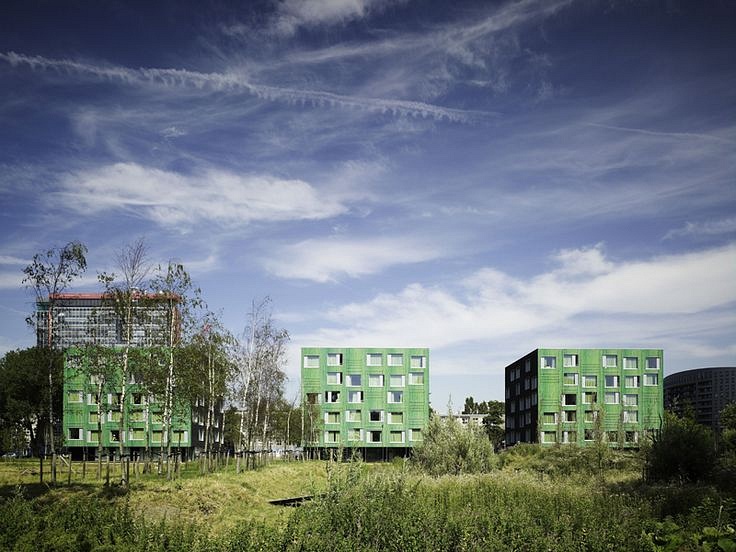Opposition parties in the Dutch parliament are concerned about the housing shortage among international students and want firm agreements. The minister responsible, Bussemaker, would prefer new students were presented with an honest picture. This would enable them to make up their own minds.
A great deal of work is needed to resolve the lack of housing for international students in Dutch university towns.
International students who are unable to find rooms have to sleep in cars, on campsites and in hostels, or even return home. A great deal of work is needed to resolve the lack of housing for international students in Dutch university towns. Last week, the umbrella organisation for student housing corporations, Kences, sounded the alarm.
“What are we going to do about it?” asked Frank Futselaar of the Socialist Party. And the outgoing Minister of Education, Bussemaker, was therefore called to the House of Representatives this afternoon to provide a statement.
Action plan
Together with Zihni Özdil (of the green party, GroenLinks), Futselaar tabled a motion for a new student housing action plan. It calls for the minister to make firm agreements with institutions, local authorities and housing corporations to tackle the dire housing shortage, especially in Amsterdam, Utrecht and Groningen.
“International students are vulnerable: they do not know the law here and do not have a network. That is why they are often swindled or return to their homeland disappointed,” claimed Futselaar. “That can surely not be the intention,” added Özdil. “We like to boast about the internationalisation of our education, then look silly for not having enough suitable accommodation.”
The minister, however, feels that an action plan will add very little. And to demand that the institutions of higher education ensure sufficient accommodation, as advocated by Erik Ronnes of the Christian democratic party, CDA, is equally inappropriate according to the minister. “I do not believe we should turn such institutions into a sort of housing corporation.”
Presenting an honest picture
The minister believes that it is important not to impose excessive national regulations on institutions of higher education. International students should, however, be presented with an honest and transparent picture so that they have a better idea of what to expect. “Even if that means, for example, that it would be better for them to study in Twente than in Amsterdam.”
Bussemaker points out that some cities are simply overcrowded. And institutions are often powerless to do anything about that. “Inform students about such possible shortages in accommodation. Then it is their own responsibility to think carefully about where they want to go.”
Bussemaker also believes that institutions should collaborate closely with local authorities and housing corporations to ensure adequate accommodation. An example of this is the social enterprise ‘Academie van de Stad’ in Amsterdam, a project in which students receive housing in exchange for community work. The minister also proposes that local authorities and housing corporations could look at vacant offices and asylum-seeker centres.
A debate about nothing
According to Alexander Kops of the right-wing populist party, PVV, a stop should be called to the “crazy” policy aimed at recruiting international students, and called it “a debate about nothing”. He feels that if there is a housing shortage in university towns, Dutch students should take precedence.
Bussemaker rejects this approach: “We live in an international world and that is perhaps especially true for institutions of higher education. Although I am aware of nationalist tendencies in the Netherlands, I believe we should maintain that international attitude.” The minister pointed out that this is because we can learn from each other’s culture, but also because international students staying in the Netherlands bring in one and a half billion euros.
At the same time, she is also “fully aware of the drawbacks”, adding that, just as with the proliferation of English-language programmes, the large number of internationals is threatening to become a sort of status symbol. “It is something we need to be careful about: internationalisation should always be judged on content.”
HOP, Matthijs van Schie
Also read:
TU Noord campus welcomes its first international residents
Do you have a question or comment about this article?
redactie@hogeronderwijspersbureau.nl


Comments are closed.